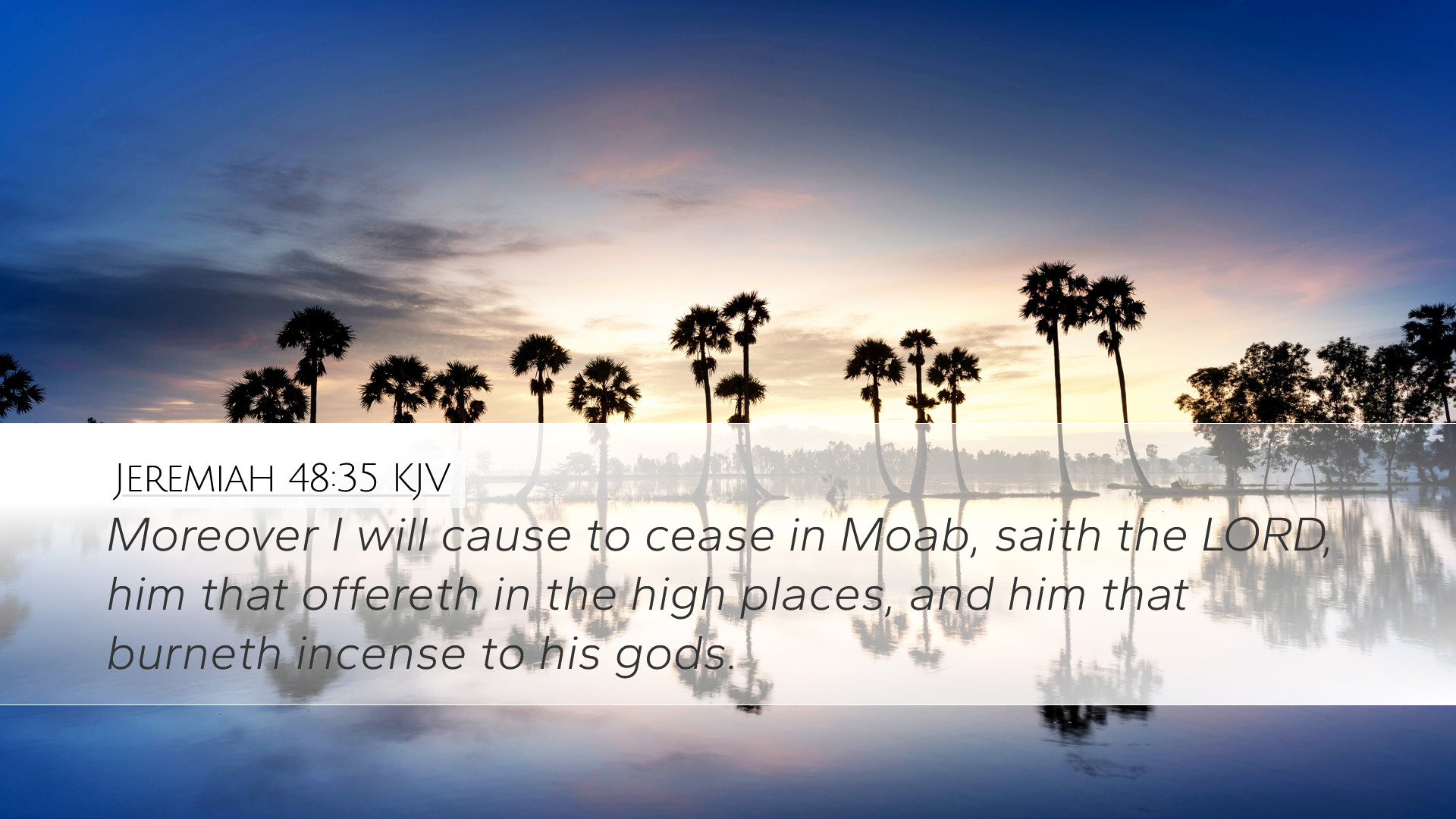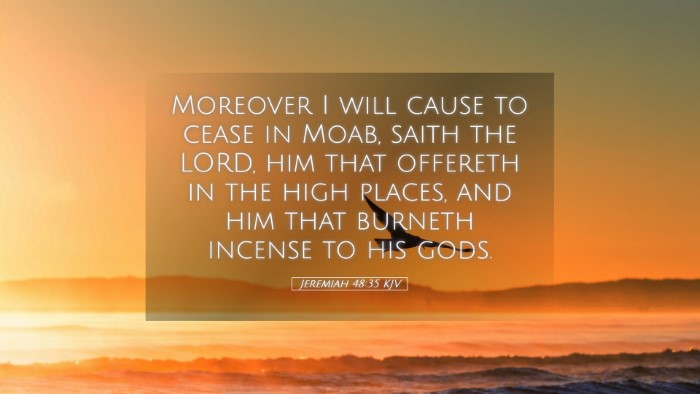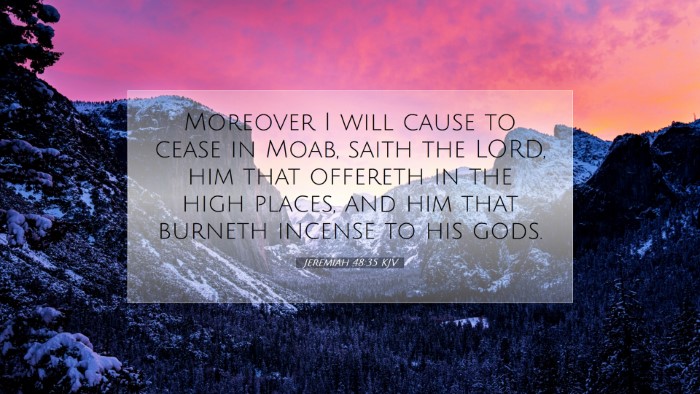Commentary on Jeremiah 48:35
In Jeremiah 48:35, we read: "Moreover, I will cause to cease in Moab," declares the Lord, "him who offers sacrifices in the high places and burns incense to his gods." This verse, steeped in historical and theological significance, opens windows for deep exploration into the nature of divine judgment and the downfall of idolatry. Below is a synthesis of insights derived from notable public domain commentaries.
Divine Judgment on Moab
Jeremiah's prophecy concerning Moab underscores the certainty and severity of God's judgment. As portrayed by Matthew Henry, this verse encapsulates God’s intention to obliterate the means of idol worship prevalent amongst the Moabites.
- Nature of Idolatry: Henry emphasizes that the mention of high places and incense relates to the customary practices of idolatry. The high places were often sites of worship for false deities, where the Moabites offered sacrifices.
- Decree of Ceasing Sacrifices: The phrase "I will cause to cease" signifies not only a halt in actions but a complete destruction of the Moabite religious system. God's decree assures the eradication of every false religious practice.
Theological Implications
This prophecy carries significant implications for understanding God's relationship with nations and His intolerance of idolatry. Albert Barnes articulates this point effectively, highlighting that this judgment serves as a warning to both Moab and surrounding nations about repercussions for turning away from the true God.
- Universal Sovereignty: Barnes asserts that God's authority extends to all nations, illustrating that idolatry is an affront to His supremacy. The Moabites thought they could worship multiple gods, yet God's response reveals a divine standard against such practices.
- Call for Repentance: The cessation of sacrifices reflects a broader call for nations to repent and seek the Lord rather than pursue the emptiness of idolatry that leads only to destruction.
The Role of High Places
Adam Clarke provides a profound analysis of the high places referenced in this verse. He notes that these elevated sites were not only geographical locations but symbolic representations of rebellion against God.
- Symbol of Exaltation: Clarke elucidates that high places often symbolize human pride and aspirations contrary to God's will. They were locations where people believed they could connect with the divine without adhering to God's ordained worship.
- Consequences of False Worship: Clarke points to the futility and danger of relying on such places, reinforcing Jeremiah's message that any attempt to commune with God through false means is ultimately doomed to fail.
Historical Context
Understanding the historical backdrop of Moab enhances the significance of this prophecy. The Moabites, descendants of Lot, often found themselves at odds with Israel. Throughout the Old Testament, they frequently engaged in idol worship, notably the worship of Chemosh, which involved abhorrent practices condemned by God. Thus, this prophecy reflects God's righteous response to a nation steeped in rebellion.
Modern Application
The application of Jeremiah 48:35 transcends its immediate context and speaks to the contemporary church and society. It poses essential questions regarding the nature of worship and the idols that may infiltrate our lives today.
- Identifying Modern Idols: Just as the Moabites clung to their high places, modern believers are called to examine what takes precedence in their lives. What are the 'high places' that distract from genuine worship of God?
- Commitment to True Worship: The promise of God to cease false worship invites introspection among believers, prompting a commitment to worship Him in spirit and truth, free from the distractions of cultural idolatries.
Conclusion
Jeremiah 48:35 serves as a powerful reminder of God's nature—holy and just. The obliteration of Moab’s religious practices affirms the Lord's sovereign right over worship and highlights the importance of fidelity to Him. Pastors, students, and scholars alike are encouraged to reflect deeply on the call to worship God alone, learning from the past to inform a vibrant, faithful present.


